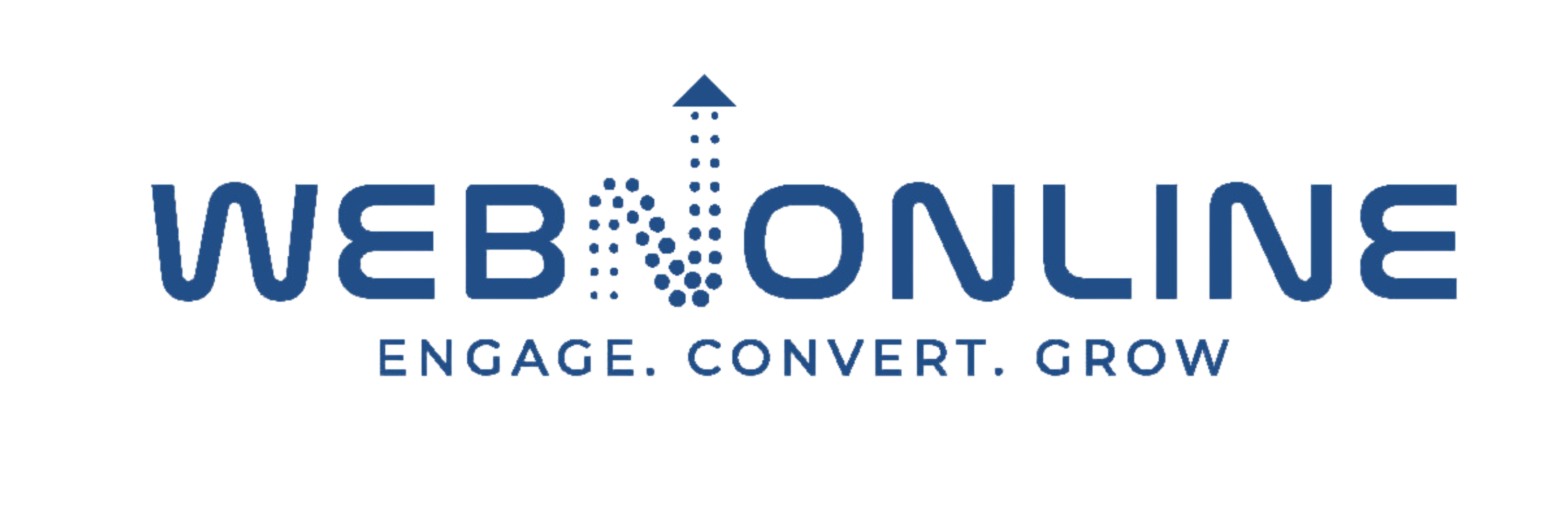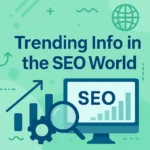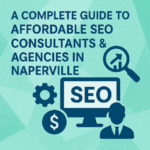
Over the last few years, Artificial Intelligence (AI) is rapidly becoming the most disruptive force in digital marketing, including search engine optimization (SEO). From AI-generated content to Google’s Search Generative Experience (SGE), how people search, how websites are ranked, and all the rest are all facing an impactful disruption.
But with all of this disruption, one question looms large in front of the SEO community:
“What is the future of SEO in a world dominated by AI?”
This blog intends to look specifically at how SEO fits into the future of search and how it must change for marketers, content creators, and businesses to get ahead.
Table of Contents
AI Has Forever Changed Search
The entry of AI into search engines has changed how search engines interpret queries and rank content. Google’s BERT, MUM, and now SGE (Search Generative Experience) use natural language processing to determine user intent, context and meaning—not just keywords.
Key Impacts
Semantic Search: Google understands relationships between topics and context, not just word-for-word matching or synonyms.
Answer Engine Model: AI provides answering machines directly in the search experience, cutting down on the number of clicks to get to websites.
Contextual Ranking: Content that broadly covers a given topic, or queries it from several dimensions, will tend to rank higher.
Key Takeaway
SEO has shifted from keyword stuffing and bloated backlink portfolios to determining relevance, expertise, and user value.
Keyword-First Strategy Is Dying, Intent Is King
While keywords are still important, the AI boom has rendered it less of a keyword-first SEO strategy. Google has infinitely more AI capabilities at its disposal, and it is leveraging those capabilities to understand both intent when someone searches for something, rather than the words they input literally.
Once vs Right Now:
Then: “best budget phone” → Pages optimized just for that exact phrase would rank.
Right Now: Google understands the user wishes for reviews, price comparison and trustworthy recommendations — even when they type “cheap android phone.”
What to Do Now:
Think about topics instead of just keywords.
Leverage cluster strategies: Build content silos around broader themes.
Optimize for search journeys including subsequent questions and context.
Rise Of Ai Content- Opportunity And Threat
AI tools like Chat GPT, Jasper, Copy.ai have made producing thousands of words of content easy. However, Google’s Helpful Content System is now aggressively filtering out low quality spam, and much of that spam is decidedly AI generated.
The Future of AI Content:
AI will assist but not replace content creators.
The future is Human-AI collaboration: Use AI to draft and human knowledge to edit.
Google’s EEAT (Experience, Expertise, Authority, Trust) matters more than ever.
Pro Tip:
Write people first content and use AI to help you be as efficient as possible — not AI first content that is devoid of personality.
Zero-click Searches Will Grow
With SGE Google now answers many queries directly in the results page. Users are now more likely than ever to only ask questions without clicking through to a website.
What’s Changing:
Rich snippets, AI summaries and knowledge panels are taking up significant space.
Voice assistants also provide voice answers where no website visit is necessary.
Click through rates (CTR) in some cases, are even decreasing for even top ranking sites on some query types.
How to Adapt:
Optimize for featured snippets, FAQs, People Also Ask boxes.
Utilize schema markup (structured data) to give AI more context.Establish brand recall, so the user search you for your business by name, even if they encounter A.I. summaries.
Technical Seo Is Now More Important Than Ever
While content is king, without Technical SEO, it is just a king without a castle! A.I. and crawlers are now judging technical quality at an even higher level.
Key Items:
Page Speed & Core Web Vitals – Google should reward mobile first, quick-loading websites:
Structured Data – Schema is a way for A.I. to understand your content and display it.
Accessibility – Clean code, ARIA labels, and semantic HTML can benefit users and machines.
Future-Proofing Elements:
Make time for technical audits often.
Make sure you are ready for mobile-first indexing.
Use tools such as Screaming Frog, Sitebulb, and PageSpeed Insights on a regular basis.
Branding Will Be More Important Than SEO Hacks
With A.I. making it easier to produce content, the Internet will be inundated with similar sounding generic pages. The difference now will be trust and authority.
Google Will Value:
Authors and Brands who are known.
Sites that have backlinks from respected authority sites.
Mentions, citations, and reviews from real-users.
Your future SEO will largely depend on:
Establishing your credibility of your personal brand or company.
Claiming your Google Knowledge Panel.
Publishing content under authorship that can be verified.
User Experience (UX) Will Dictate Your Rankings
New A.I. powered ranking systems understand how users behave on your site — and use that information to assess quality.UX Signals Matter:
- Bounce rate
- Time on site
- Mobile usability
- Interaction (scrolls, clicks, video plays)
Ways to Improve:
Design with Readability in Mind; Light layouts with lots of wood space, larger font sizes.
Make navigation obvious.
Use interactive features; videos, quizzes, accordions.
Visual and Voice SEO Are On The Rise
AI is taking non-text search mediums to the next level! which is a huge shift.
In Visual Search:
Using images as a search medium is taking off, through Google Lens, Pinterest and eCommerce sites are learning to optimize their alt texts, image filenames, and structured product data.
In Voice Searches:
Smart speakers and voice assistants are introducing longer more question phrase conversations than ever before.
You twist upside down as these will be longer queries more often using question phrases
Prep Yourself for The Future:
Produce Q&A formatted content.
Understand natural language tone.
Structure the pages for spoken answers / used featured snippet optimization.
Local SEO is Getting Hyper-Personalized
AI in local search is on the up. GA is now automatically personalizing by location search queries, the device used, other factor considered search history, and (the user interaction/behaviour when grouping the personalized search query results).
What this means:
Local SEO is going to differ from blocks away:
Visibility will be affected by reviews, NAP-consistency, and localized content.
AI may also influence a user’s sentiment in reviews can influence how listings are personalized and how business rankings are shaped.
What you can do:
Keep your Google Business profile up to date and maintained.
National systems should also encourage happy customers to leave reviews with keywords.
Use local schema markup.
SEOs Need to be Strategic Thinkers
AI will soon be mostly taking over the basic essentials of an SEO that includes:
- Keyword suggestions,
- Content outlines,
- Internal linking.
- Technical fixes.
So, what’s left for humans SEOs?
Strategy: what is the business goal and how this gets reversed to ROI.
Creativity: original, fun, and painfully helpful!
Data Interpretation: interpreting what the data tells us and determining if we are able to reverse engineer through measuring reports and refining campaign.
Real world PR; in finding links and mentions through partners and outreach.
In the future, SEO expert will wear many hats;
- Content strategist
- Brand consultant
- CRO collaborator
- AI prompt engineer
The SEO Stack of The Future: Tools We Will Be Recommending
Function Future Ready Tools
AI Writing & Research ChatGPT, Jasper, Frase
Technical SEO Screaming Frog, Sitebulb, Ahrefs
UX & CRO Hotjar, CrazyEgg, Google Optimize
Schema & Markup Merkle Schema Markup Generator, Rank Math
SEO Audits & Tracking Surfer SEO, SEMrush, ahref, GSC
AI optimization NeuronWriter, Clearscope, MarketMuse
Final Thoughts: Either Adapt, or Die
SEO isn’t dead – it’s evolving, and rapidly! To be successful from a designed and experienced AI powered search experience in the future, you need:
To develop real brands,
Value-led content,
User journeys – not just crawlers,
To consider smart ways to implement AI, and
a good technical follow through.
As AI continues to re-shape the way things/searches are done, the clear winners will be companies/people that embrace technology, not fear it and creates content experience over guff online pages.



